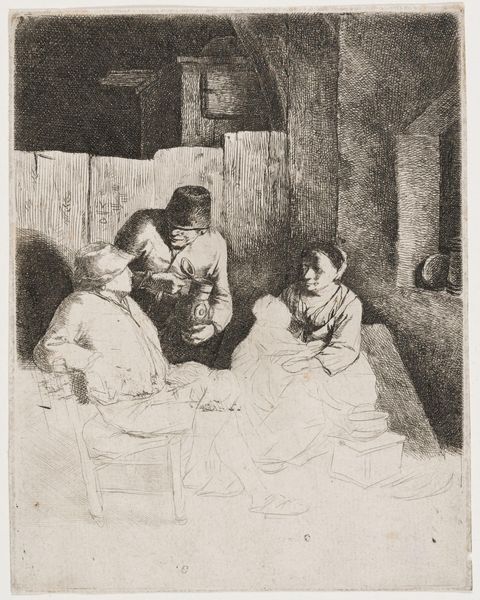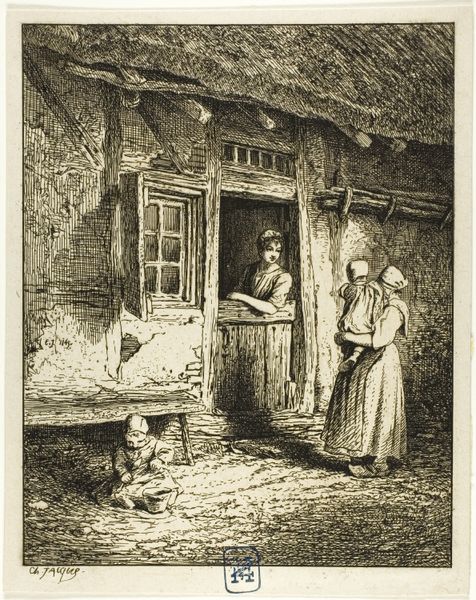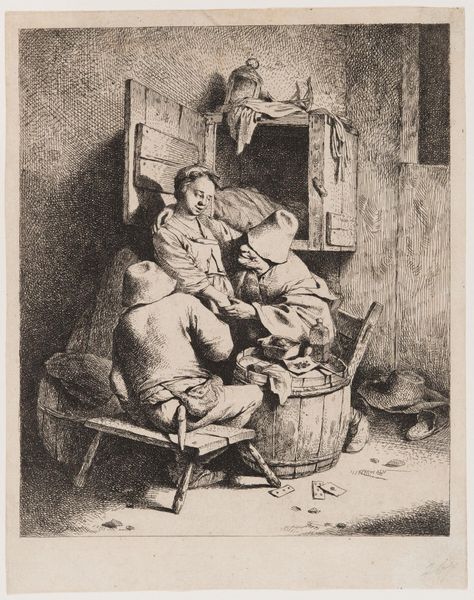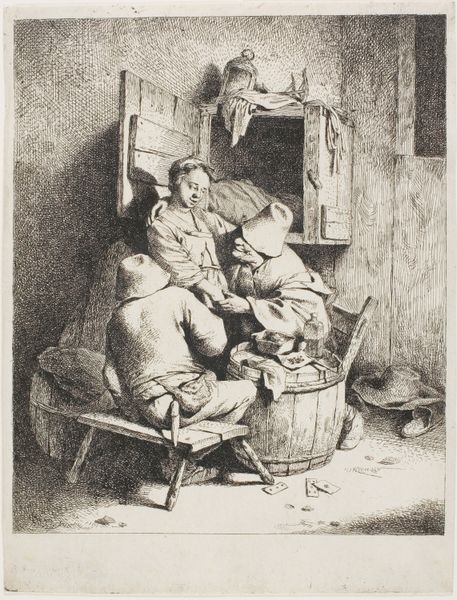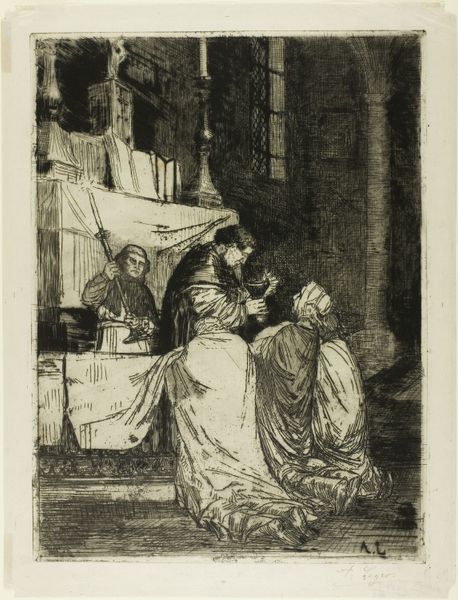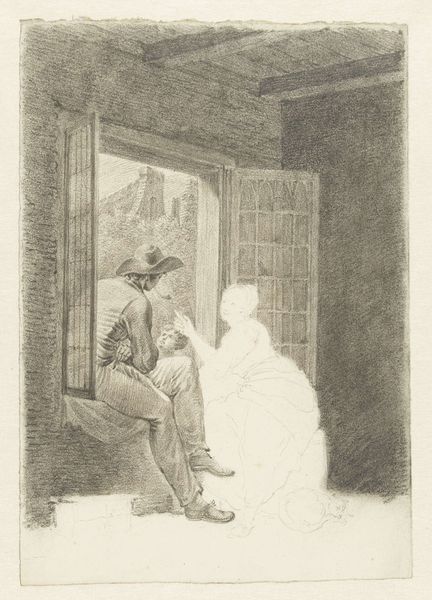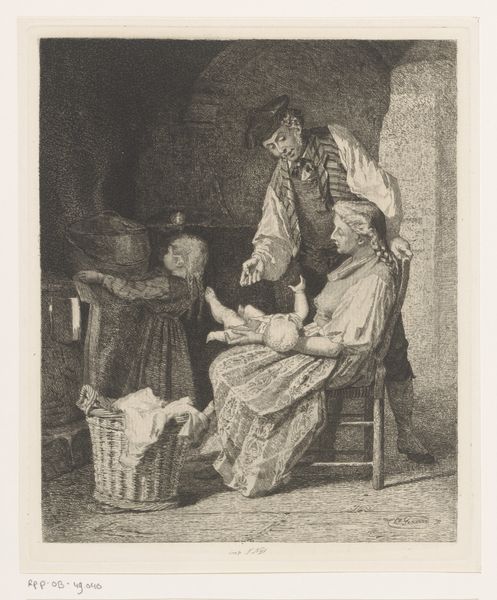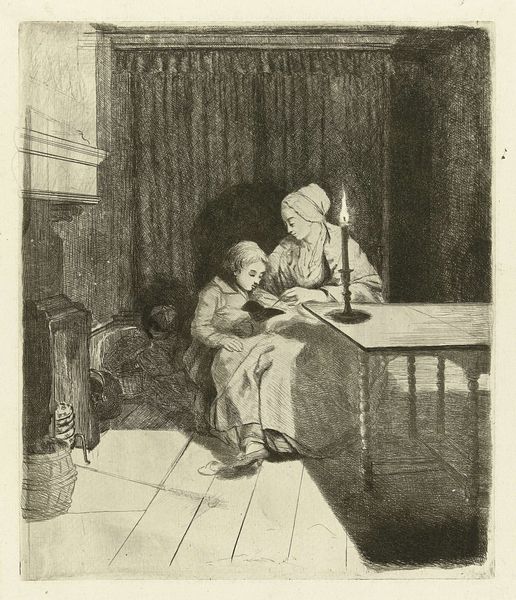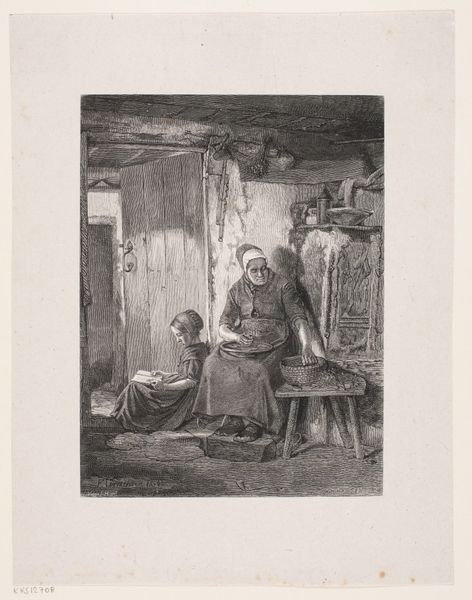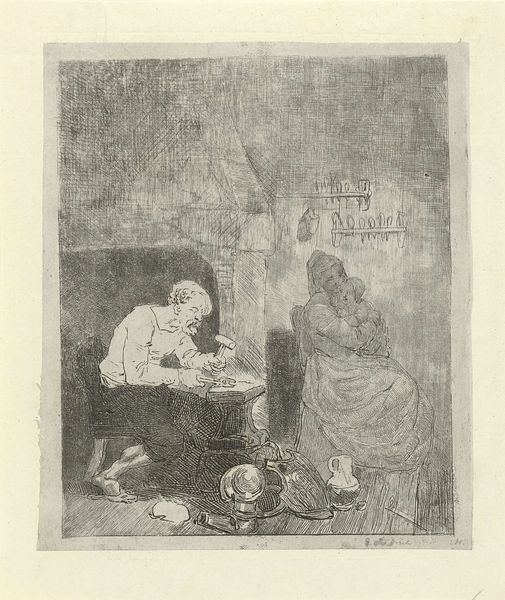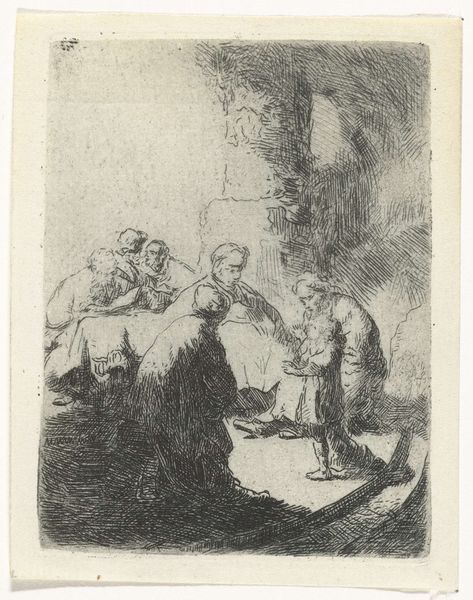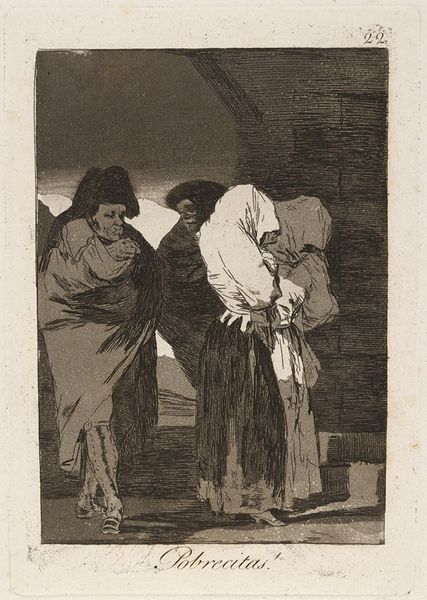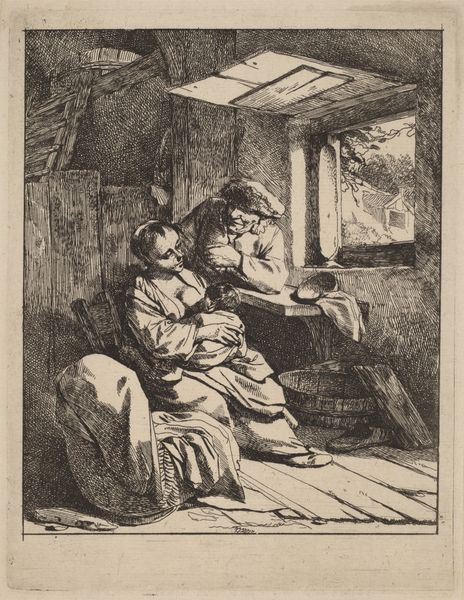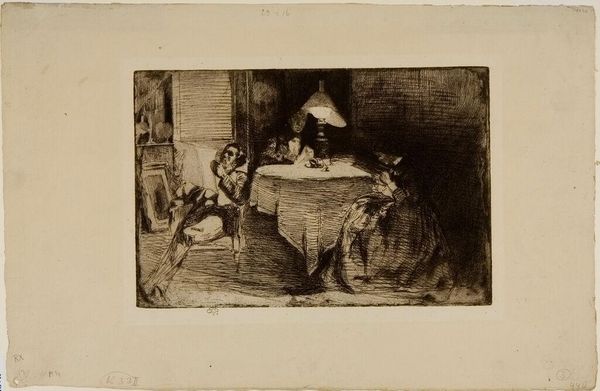
print, etching
#
narrative-art
#
baroque
#
dutch-golden-age
# print
#
etching
#
figuration
#
genre-painting
Dimensions: height 153 mm, width 119 mm
Copyright: Rijks Museum: Open Domain
Cornelis Bega etched this small plate of two men, a woman and a child in an inn sometime in the mid-17th century. Bega worked in Haarlem in the Dutch Republic, a society undergoing rapid economic expansion. The Dutch Golden Age was also a time of increasing social stratification and images like this reflect the growing awareness of class distinctions. Popular prints, like this one, frequently depicted peasants engaging in drinking and other pastimes. But the artist’s intentions are hard to discern. Is this an unsentimental rendering of everyday life? Or is Bega playing to a market for idealized or satirical images of the lower classes? Looking closely at Dutch art of this period, we can see how artists were responding to new social realities and also shaping them. We can use sources like civic records, tax documents, and published sermons to better understand the world in which such images were made and consumed. Art history depends on that wider context.
Comments
No comments
Be the first to comment and join the conversation on the ultimate creative platform.
